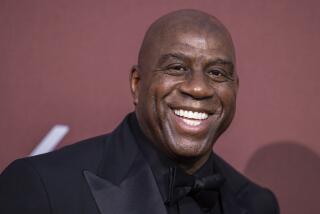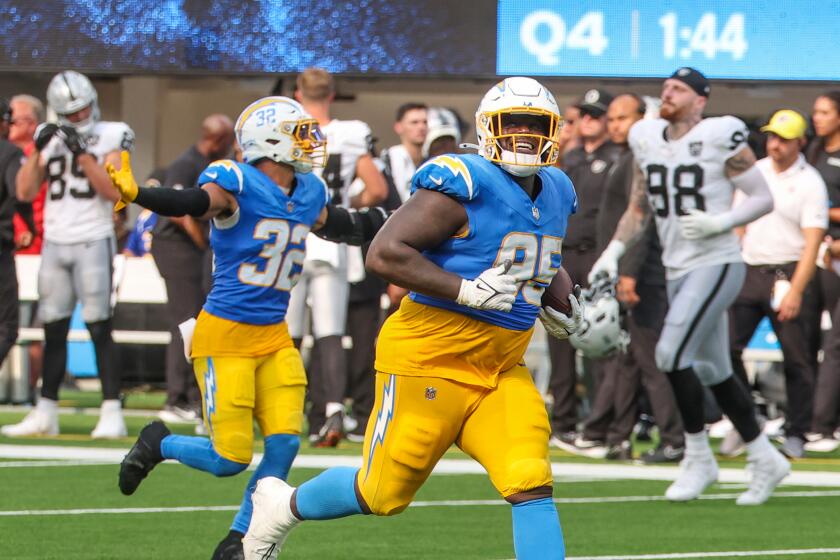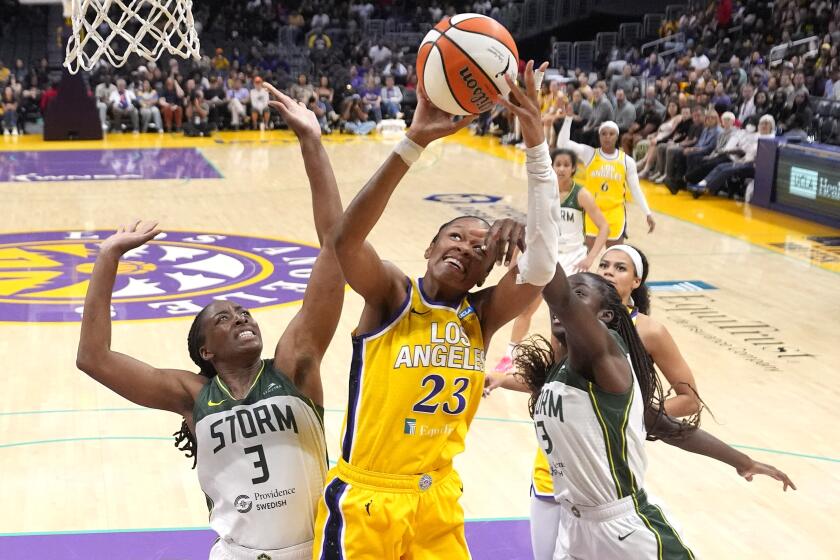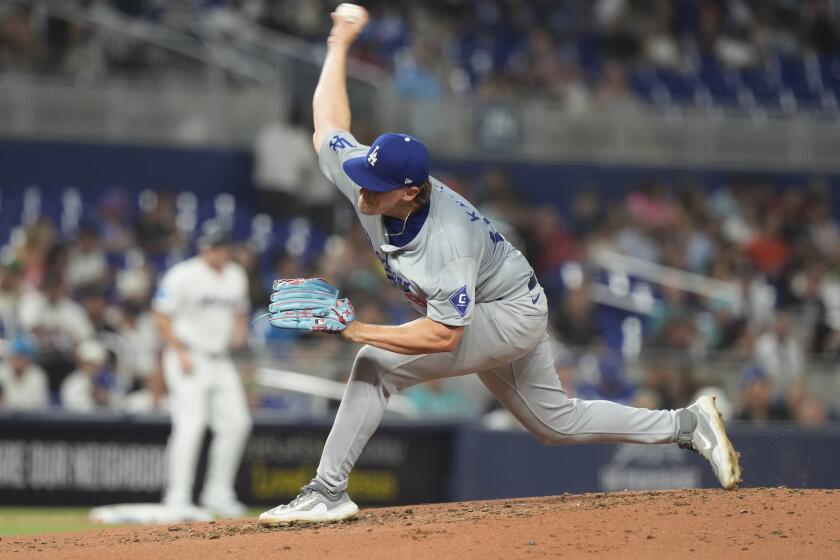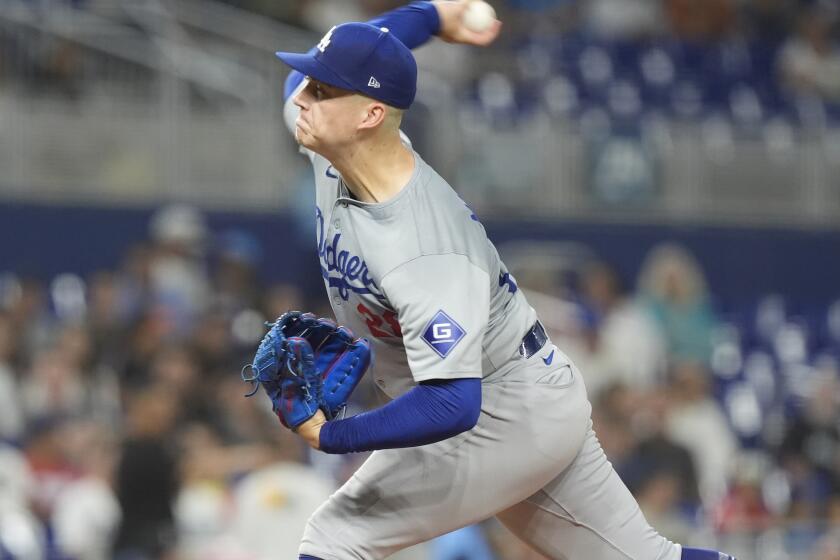An outside-the box candidate for baseball commissioner: Kevin Johnson
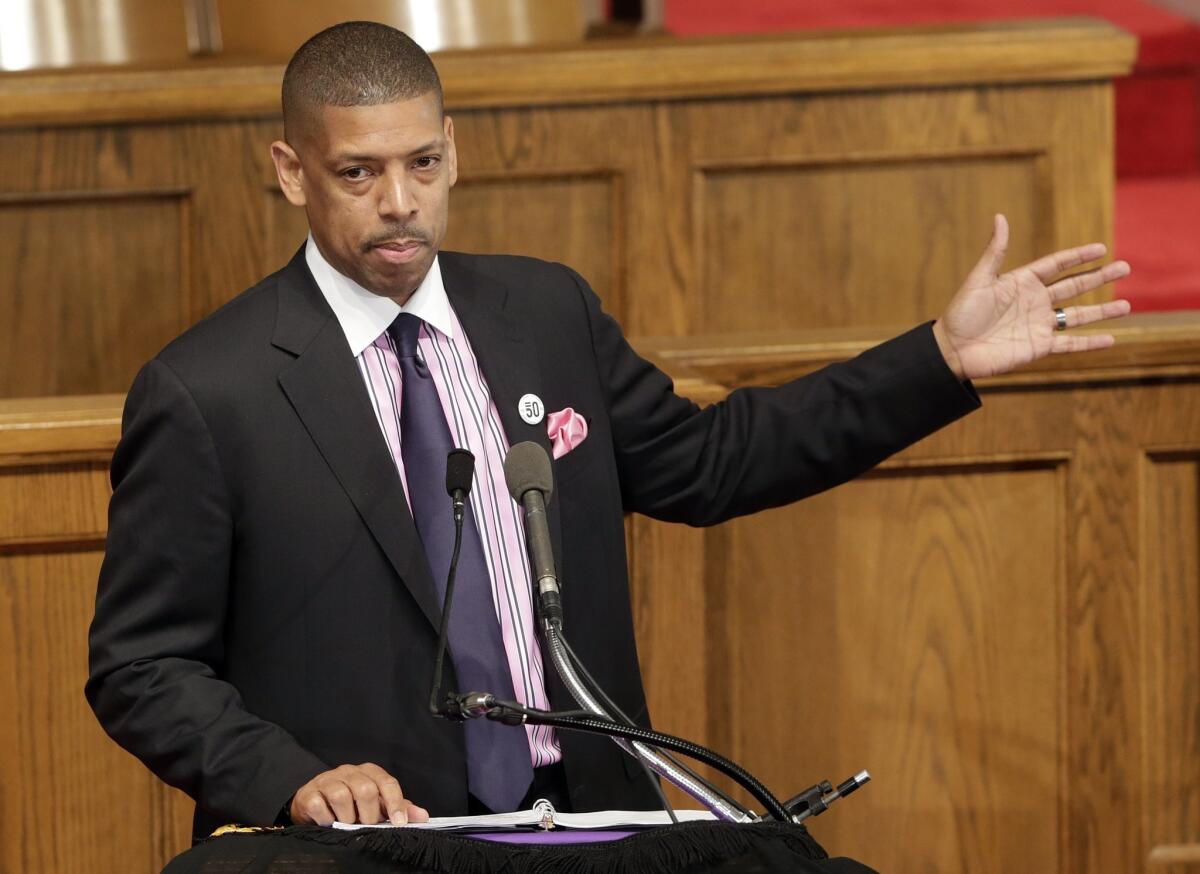
SACRAMENTO — There is hope for the rundown downtown here, and for the hometown basketball team. The Sacramento Kings were as good as gone in January, when rich boys from Seattle put up half a billion dollars to load the team into a moving van headed north along Interstate 5.
Kevin Johnson, the mayor, threw himself in front of the van.
“He had no ownership group, and he had no building,” NBA Commissioner David Stern said. “Other than that, he was in great shape.”
In a era when sports facilities languish for years on the drawing board, and in a state where taxpayers are justifiably skeptical about contributing to venues that benefit billionaire owners, Johnson won. In May, he presented the NBA with a new ownership group, and a way for the city and the Kings to pay for a new arena at the heart of a downtown revitalization plan.
To do this at all is impressive. To do it in four months is virtually unheard of.
To the sports fan, Johnson is best remembered as an All-Star point guard for the Phoenix Suns. But the Oakland Athletics drafted him as a shortstop, and he played two minor league games before committing to basketball.
Baseball ought to bring him back, this time as commissioner.
Bud Selig keeps insisting next year will be his last, but the owners have yet to form a committee to search for his successor. Baseball insiders expect that owners will settle on one of their own, or one of Selig’s lieutenants, with Selig conferring his blessing.
That would be the easy way, and the most logical one. Baseball owners guard their fiefdoms fiercely, and they kicked out Fay Vincent, the last outsider who came in and tried to tell them what to do. Selig has lasted two decades, in no small part because he talks to every owner just about every day, listening to their concerns before building a consensus for his ideas.
“You need a semi-benevolent dictator,” one major league owner said.
In other words, you need a politician. Selig was a car salesman. Same thing — a deal maker, not an imperial ruler.
Johnson, 47, worked the phones among NBA owners for three years, getting Sacramento a reprieve when the Kings’ previous owners wanted to move to Anaheim in 2011, and again when they walked away from negotiations for a new arena in 2012. This year, when he had a deal to pitch — when he had strong new owners and an arena plan lined up — he closed the sale.
That might have been the simple part, considering the fluid and simultaneous talks with developers, city and state leaders, and potential ownership partners from Silicon Valley to San Diego.
“It can almost make a commissioner’s job look easy,” Stern said.
In many ways, Selig has done a magnificent job. Labor peace is the rule, not the exception. Attendance and television contracts have soared to record levels. On the web, baseball has lapped every other sport. Under Selig, baseball’s annual revenues have jumped from $1.2 billion to $8 billion.
When the Dodgers sold for $2.15 billion last year, Selig happily reminded everyone he had told owners “to judge me on their asset value.”
The prosperity is so great, the foundation of the game so strong, that owners can afford to promote one of Selig’s aides — most likely Rob Manfred, the de facto No. 2 official — to president of Major League Baseball. Let him keep the peace, and keep the dollars flowing, and let Johnson share a vision of something greater than asset value.
Let him share his vision of how to promote players, an area in which the NBA excels and baseball fails. In an ESPN poll released last week, more than 1,000 fans were asked what player would be the face of baseball in five years. The leading vote-getter: none, with 25%. Mike Trout got 8%, followed by Alex Rodriguez and Derek Jeter, who will be 43 and 44, respectively. Babe Ruth, dead since 1948, got the same percentage of votes as Andrew McCutchen.
Let Johnson share his vision of how to grow a team in harmony with a community, from the lessons he has learned as a player in Phoenix — “Their downtown was a ghost town, worse than Sacramento,” he said — and as a mayor in Sacramento.
Let him share his vision of how teams can help further education and literacy in their towns. Johnson founded a charter school system, and his wife Michelle is a former chancellor of the District of Columbia schools.
“Athletes have to be role models,” he said. “If we don’t behave properly, and if we’re not dressing properly, and if we’re not conducting ourselves properly, then you are going to have an unworthy product for young kids to emulate.”
Stern said Johnson “absolutely” would be qualified for the commissioner’s job.
“He has a very, very bright future, either in government or in sports or in business generally,” Stern said. “He can do it all.”
Johnson, in his second term as mayor of Sacramento, is expected to consider a run for higher office. He said he would listen to any opportunity related to sports.
“When I can look at sports as a mission that is bigger than just winning and losing,” he said, “that is very interesting to me.”
The California Black Caucus hosted a screening of “42” last week. Johnson presented a key to the city to Jackie Robinson’s widow, Rachel.
“It was one of the biggest honors of my life,” Johnson said.
Baseball could use a new face at the top, a clean break from the steroid era. In Johnson’s case, he could open his inaugural address recounting the same powerful aspiration he shared in our interview last week.
“I grew up,” he said, “wanting to be Jackie Robinson.”
Twitter: @BillShaikin
More to Read
Go beyond the scoreboard
Get the latest on L.A.'s teams in the daily Sports Report newsletter.
You may occasionally receive promotional content from the Los Angeles Times.

